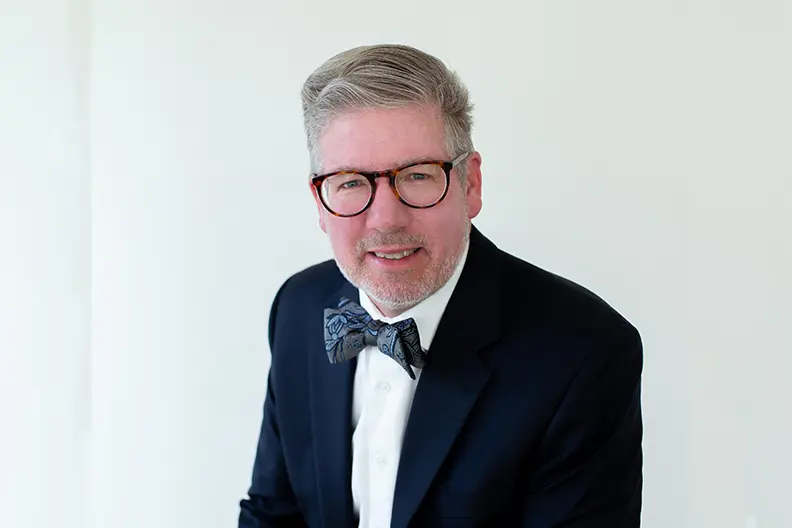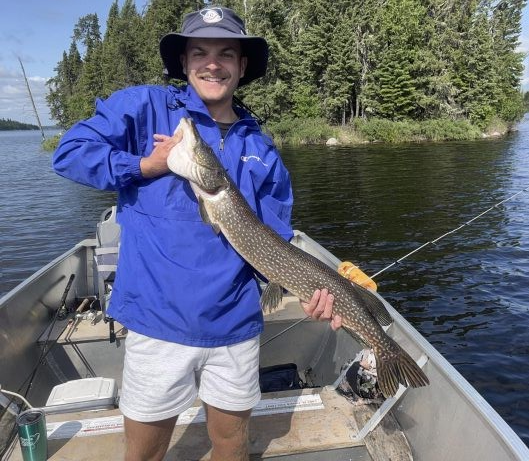If you haven’t heard yet, Millikin’s new President Dr. Dean Pribbenow is extremely excited for his first day.
Throughout conversations with students, meetings, and interviews, Pribbenow has expressed nothing but anticipation for his arrival to campus.
These are the exact same sentiments he expressed throughout the conversation I had with him this morning in the University Commons, especially when reflecting on how he felt when he learned that he had earned the position of President.
“We were stunned in some ways,” he said. “It was my wife Kris and I together when I got the call from Ron Branch, the Chairman of the Board. It was a Saturday morning after the Board had met.
“You play the scenario out in your head about the timing of these things and so to get the call and to get the announcement was surreal. We sort of sat and looked at each other and then jumped up and down a little bit. It was a very joyful moment.”
As for now, Pribbenow must ensure that his transition from Elmhurst to Millikin goes smoothly.
“If we could start tomorrow, I would love to do that,” he said. “I’ve really enjoyed my experience at Elmhurst and I’ve met really good colleagues and had a chance to be really supportive of student efforts.
“Once we got the invitation to come here, it is a mix of trying to hand things off at Elmhurst, to make sure that is in good hands, and the good work that we’ve done there will continue, which I am confident it will, and then start to learn people, priorities, and what people care about here.”
Dr. Pribbenow has been in Decatur since Saturday as he has started to acquaint himself with what Millikin looks like on a daily basis. He has already attended several student events and has attended a student reception put on by the university.
“Our time on campus has been wonderful,” he said. “My wife and I spoke last night after a long day and we just said it was a really affirming day in terms of feeling welcome on campus by students, faculty, and staff, but also affirming in what we perceived Millikin to be in terms of the quality of the students and uniqueness of their interests.”
Dr. Pribbenow has enjoyed his time on campus this week, but his excitement for this week pales in comparison to his first day as President.
“I hope on the first day, I don’t spend more than a couple minutes in my office,” he said. “I want to drop things off and spend time walking around campus and interact with whoever will talk with me. It’ll be July 1st, so I don’t know how many people will be around on that day.”
Not only is Pribbenow excited to engage with the students, but he is excited to learn the ideas and initiatives that students desire to carry out during this time of transition. Students are clearly at the front of his mind, and hearing their ideas is Pribbenow’s main priority.
“The people here right now have a lot of ideas for moving things forward,” he said. “They have initiatives and priorities that they are focused on, and one of my first questions will be, ‘what can I do to help advance that, or what barriers can I remove to make sure that work gets done?’”
Pribbenow is well aware of concerns raised about the visibility of Millikin’s President; this is something that has been a huge concern for students throughout the Presidency of Jim Reynolds. Ensuring that Millikin has a visible President is a top priority for students, which Pribbenow looks forward to carrying out.
“Some of the easiest ways [to be visible] are to show up where students are at,” he said. “That takes a lot of different forms. Obviously, the planned events, like the theater and music events, sporting events, and those kinds of things.
“I’ve had a few couple conversations with somebody who started the FFA Club. We were chatting the other day, and I said, ‘if you’d like, I’d love to come to one of your meetings and greet the students who are part of that and understand a little bit more about agribusiness and those things that are going on.”
However, Pribbenow doesn’t just want to attend organized events. He wants to be on campus on any given Tuesday morning or Friday afternoon to visit with students in any ways he can.
“Some of them are the serendipitous kinds of interactions that happen, like when you walk around campus and hang out,” he said. “My wife and I are talking about some ideas, such as sitting in the dining room with a little sign that says ‘the pres is in.’ Some of that is communicating an openness, communicating a desire that you want to talk with students.
“I will be visible. I will be present, and I will do everything I can to be as available to students as I can.”
Along with visibility, many students are worried about Millikin’s financial situation. How can the University come together to overcome financial stringency in a time of transition?
Pribbenow has some words of encouragement.
“Some of what Millikin has experienced and is currently working through is not unique to Millikin,” he said. “This is a tricky time for colleges and universities in higher education. So, the question for me is now whether or not an institution will experience it, but how they respond to it.
“I’ve seen institutions turn an eye away from it and say ‘it’ll be alright,’” he said. “Or ‘we don’t have to pay attention to this. We’ll just add more students and grow more programs.’ That is not a responsible way to do it.
“It’s taking a step back and having the courage to make tough decisions and then having the creativity and commitment to say, ‘how are we going to work ourselves out of this?’ What gives me encouragement is the people I’ve talked to who are optimistic about the plans that are in place for stabilizing things financially while not jeopardizing the quality experience for students.”
One of the things that set Millikin apart for Pribbenow was Millikin’s emphasis on Performance Learning. Millikin has always had a rich tradition of equipping students with hands-on experiences, and this is something that the new President is excited to witness.
“I think some of the most transformative opportunities I had was when I was taking what I learned in the classroom and took it and applied it,” he said. “One of my early jobs was the Founding Director of the Institute for Service Learning. So, at a larger institution in Wisconsin, I had a chance to build from the ground up a Community Based Learning program that linked faculty and students to community partners.”
During this time of transition, Pribbenow credits his faith for keeping him grounded and focused on the many tasks he has overseen with his transition. His faith is extremely important to him, but he realizes that protecting students who may not share that same faith is a top priority, especially at Millikin.
“Different people come to this through different ways,” he said. “There’s a lot of chaos in the world around us, and however large or small that world is, all of us need that sort of North Star, something that we come back to throughout the chaos that grounds you. It’s that way of quieting yourself and becoming aware of what is around you.”
Although many students may hold many different beliefs as far as faith is concerned, Pribbenow is confident that he is carrying out what he is called to do by helping to improve Millikin’s campus.
“I have long believed in the notion of calling, which historically, is associated with the priesthood and other things,” he said. “In more contemporary times, it is more broadly applicable, which is ‘what do you feel your purpose is in the world? What are you being called to do to make the world better, and what’s the best use of your talents and gifts to make the spaces healthier and more vibrant than they are currently?’
“One of the things we want to do here is commit to educating the whole student. Not just the mind, but the body and the spirit. I think that is one of the unique offerings of a place like Millikin. We don’t tell people what they need to believe or what they need to do, but we provide the space for them to experience that themselves and figure out how they want to express it. That is a tremendous, tremendous thing to be a part of.”
For Dr. Pribbenow, July 1st can’t come soon enough. His commitment to the students of Millikin is unwavering. With his guidance, Millikin can become the campus it once was and the campus it should be, one where students come to receive their education, but more importantly, one where students stay for four years to complete their education.


